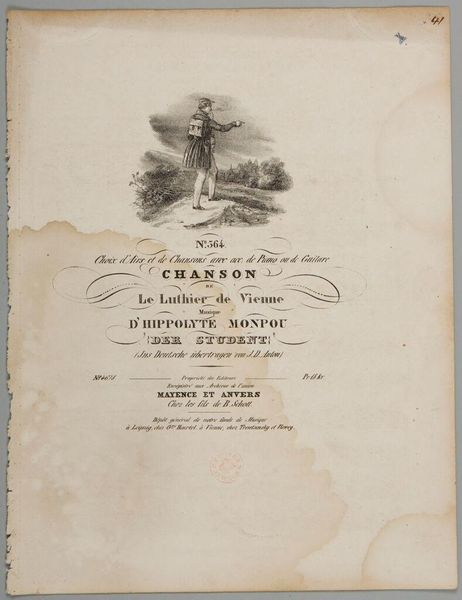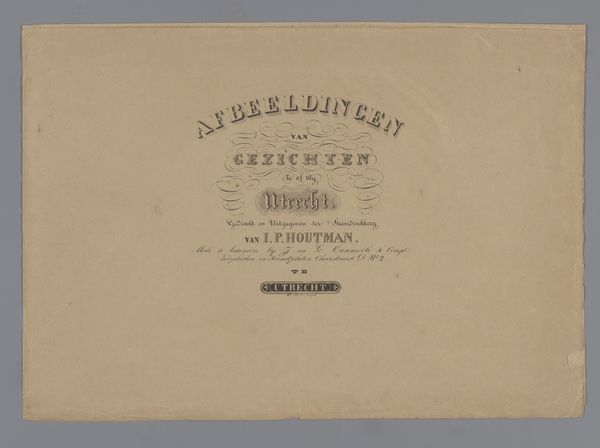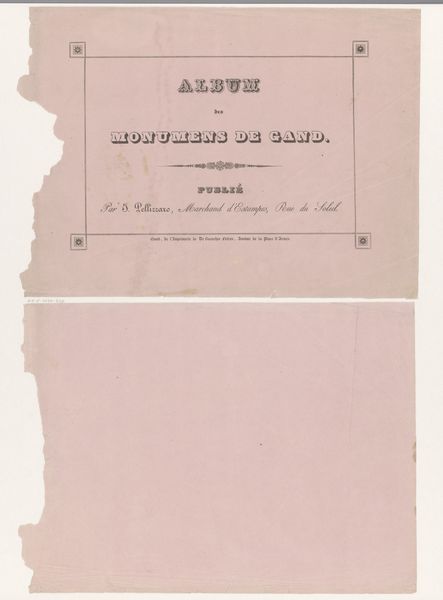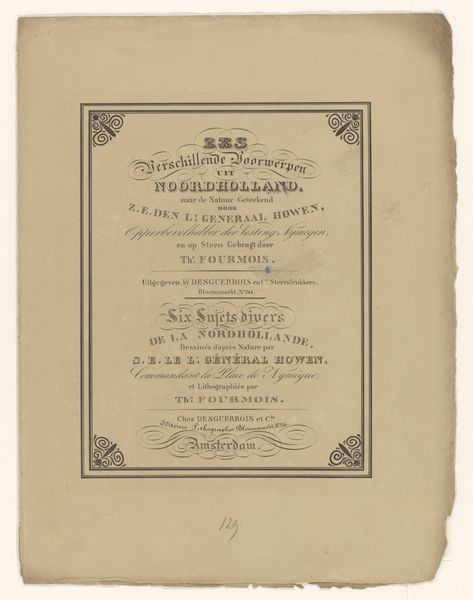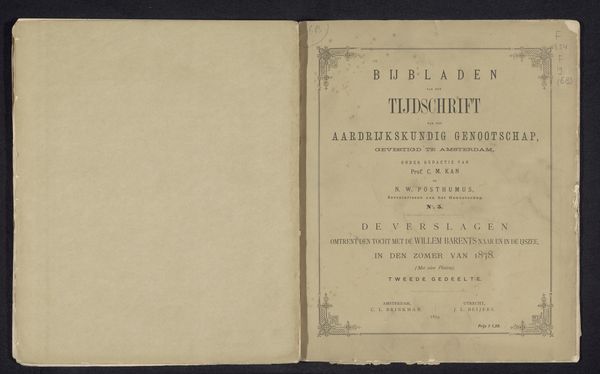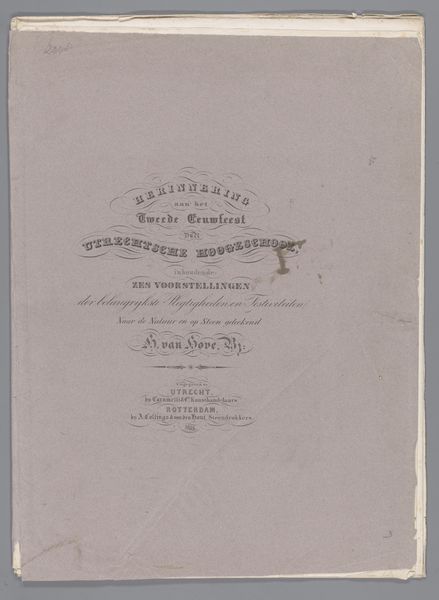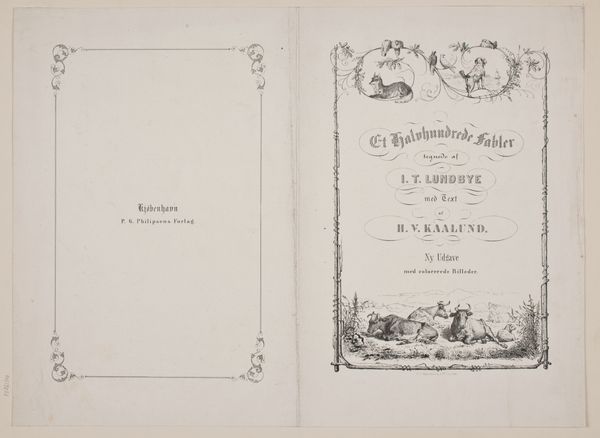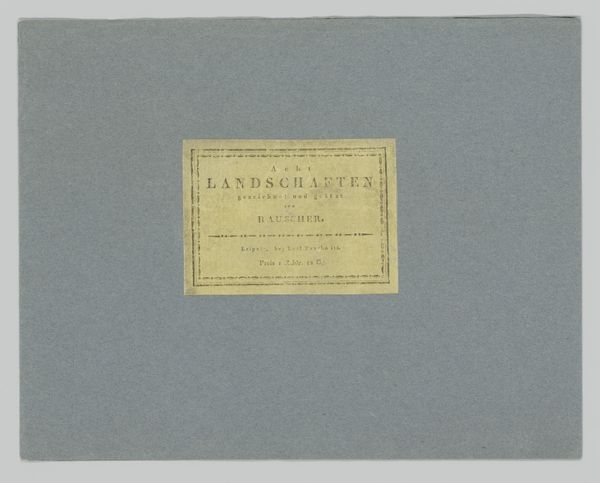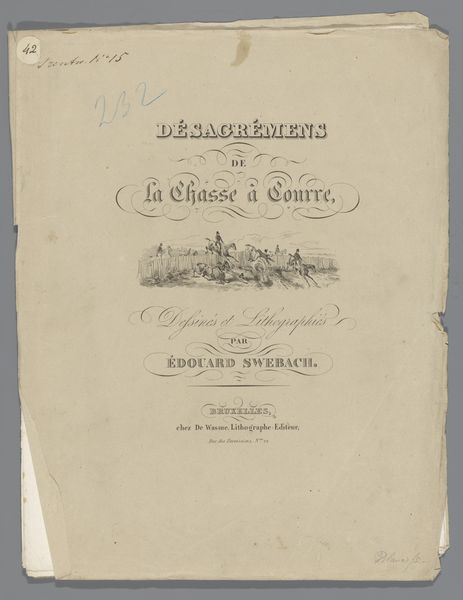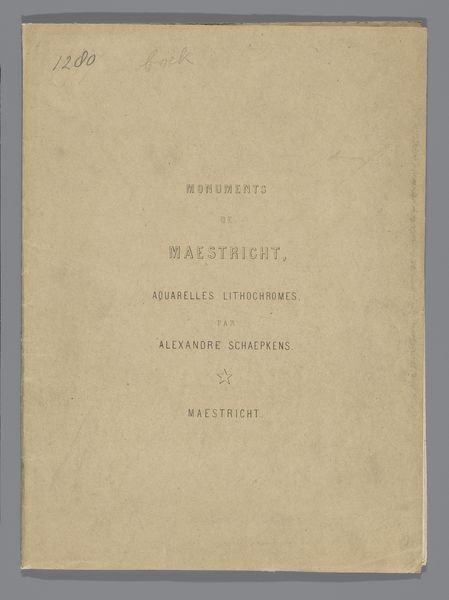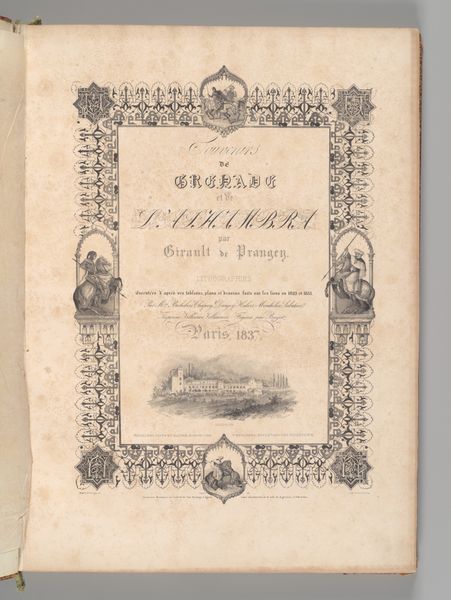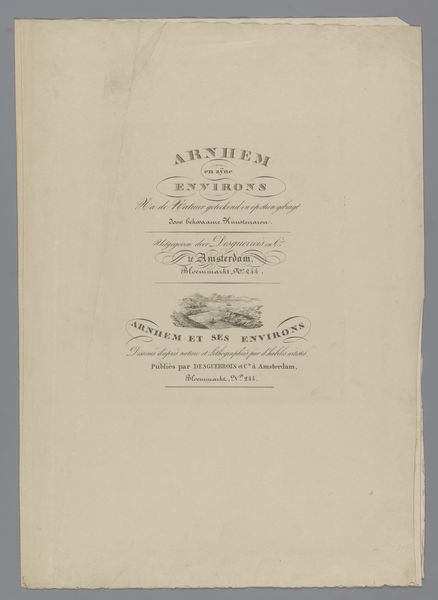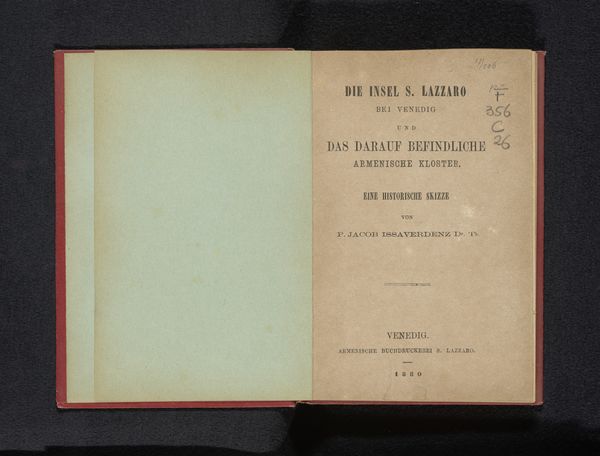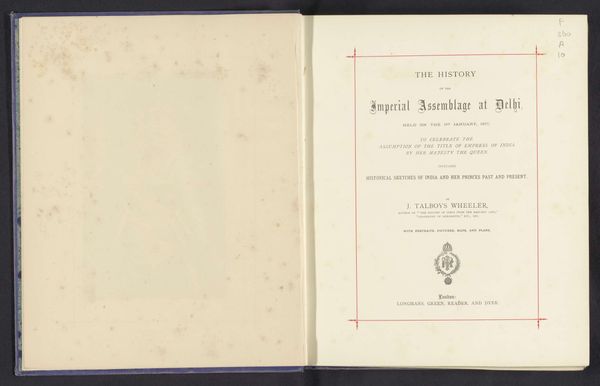
#
script typeface
#
aged paper
#
homemade paper
#
pale palette
#
script typography
#
light coloured
#
hand drawn type
#
personal journal design
#
personal sketchbook
#
fading type
Dimensions: height 410 mm, width 280 mm, height 410 mm, width 560 mm
Copyright: Rijks Museum: Open Domain
Editor: Here we have "Omslag voor: Gezigten te Loendersloot," created in 1832 by Petrus Josephus Lutgers. It looks like a title page, possibly for a sketchbook, with elegant typography on what appears to be aged paper. It’s beautifully simple. What story does it tell? Curator: This piece offers a fascinating glimpse into the art world of the 19th century, particularly the evolving role of lithography. Lutgers designates this work as being "op steen geteekend", meaning 'drawn on stone,' referring to the process of lithography that made printmaking and therefore image circulation more accessible to a wider audience. How do you think this accessibility might have changed the nature of art itself? Editor: I guess that means more people would have access to art, but maybe it also lessened the value placed on original works? Curator: Precisely. Lithography facilitated the spread of visual information, impacting not only artistic creation but also public perception and cultural exchange. This brings up important questions of authenticity, originality, and democratization within art. The printing and publishing boom changed the way art and knowledge were circulated. It wasn’t only available to wealthy people any more. What aspects of this shift do you find most intriguing? Editor: I’m intrigued by the way that advancements in printmaking led to new creative forms. It made art accessible to people who could not normally see or buy it, fostering broader engagement. Curator: I agree. Lutgers’s work highlights this transformative era, showing how technology influences artistic expression, circulation, and public consumption. I would argue this piece has great cultural significance. Editor: It is interesting to think about the layers of technological change, artistic value, and the reshaping of cultural knowledge embodied in a humble title page!
Comments
No comments
Be the first to comment and join the conversation on the ultimate creative platform.
